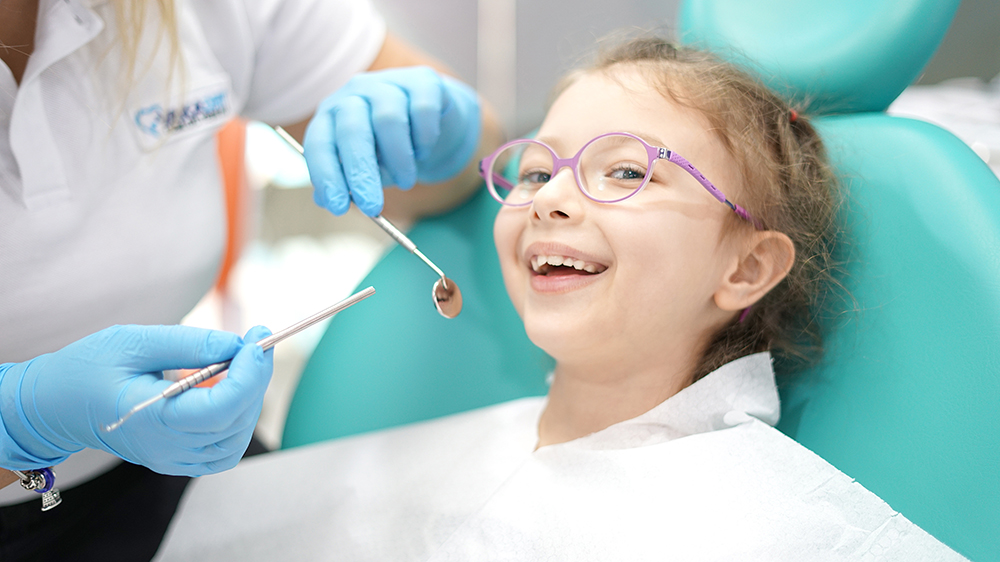Pediatric Dentistry (Pedodontics)
Pediatric Dentistry (Pedodontics)
Pediatric dentistry, also known as pedodontics, is a specialized field of dentistry that focuses on the oral health care of children, from infancy through adolescence. It is a vital aspect of dental care, as it ensures that young patients receive the proper treatments and guidance to maintain healthy teeth and gums throughout their developmental years. Pediatric dentists are specifically trained to handle the unique dental needs of children, taking into account their physical, emotional, and developmental stages.
What is Pediatric Dentistry?
Pediatric dentistry involves the diagnosis, prevention, and treatment of dental issues in children, including infants, toddlers, children, and teens. The primary goal of pediatric dentistry is to establish a foundation for a lifetime of good oral health. Pediatric dentists provide a range of services, from routine check-ups to more advanced treatments, and offer advice on how to maintain proper oral hygiene habits as children grow.
Why is Pediatric Dentistry Important?
Starting dental care early is essential for preventing long-term dental problems. Pediatric dentists play an important role in educating both children and parents about the importance of proper oral hygiene and healthy habits. Early visits to the dentist help children become familiar with dental procedures and can reduce the anxiety that some may feel when visiting a dentist in the future. In addition, pediatric dentists are trained to handle common dental conditions in children, such as:
- Teething: The process of teeth coming in can cause discomfort and irritation. Pediatric dentists can offer advice and treatment to ease the discomfort.
- Tooth Decay: Children's teeth are more susceptible to cavities. Pediatric dentists provide preventive care and early detection to minimize the risk of tooth decay.
- Thumb-Sucking and Pacifier Use: Prolonged thumb-sucking or pacifier use can lead to dental misalignment. A pediatric dentist can guide parents on how to address these habits.
- Early Orthodontic Evaluation: Pediatric dentists can detect potential alignment issues early on and provide recommendations for orthodontic treatment if needed.
Services Offered in Pediatric Dentistry
Pediatric dentists offer a wide range of services tailored to children's specific dental needs. Some of the most common services include:
- Routine Check-ups: Regular visits to the dentist for cleanings, exams, and early detection of dental issues.
- Preventive Care: Fluoride treatments, dental sealants, and education on proper brushing and flossing to prevent tooth decay and cavities.
- Restorative Treatments: Fillings, crowns, and other treatments to restore damaged or decayed teeth.
- Orthodontics: Early orthodontic evaluations to check for alignment issues and prevent more complex dental problems in the future.
- Emergency Care: Treatment for dental emergencies, such as a knocked-out tooth or trauma to the mouth.
- Behavioral Guidance: Pediatric dentists are trained to help children feel comfortable and confident during dental visits. They often use techniques to manage fear and anxiety in young patients.
When Should a Child First Visit the Dentist?
It is recommended that children visit a pediatric dentist by the time their first tooth erupts, or no later than their first birthday. Early visits allow the dentist to assess the child’s oral health, provide guidance on oral care, and address any concerns before they become more serious. Regular check-ups should continue throughout childhood to ensure the development of healthy teeth and gums.
How to Prepare Your Child for Their First Visit
Parents can play a crucial role in making their child’s first visit to the dentist a positive experience. Here are a few tips to help prepare your child:
- Start Early: Talk to your child about visiting the dentist in a positive and friendly way. Use stories or books about visiting the dentist to make them feel comfortable.
- Stay Calm: Children pick up on their parents' emotions. If you are calm and positive, your child is more likely to feel at ease.
- Practice Good Oral Hygiene: Brush your child’s teeth regularly and encourage them to develop good habits. This will help them understand the importance of dental care.
- Keep It Short and Simple: Keep explanations simple, and avoid making the experience seem intimidating. Reassure your child that the dentist is there to help and make their teeth strong and healthy.
Why Choose a Pediatric Dentist?
Choosing a pediatric dentist for your child is important for several reasons. Pediatric dentists are specially trained to deal with the unique challenges of caring for young patients. They understand children's developmental stages and use age-appropriate approaches to treatment. Moreover, pediatric dental offices are often designed to be child-friendly, with a relaxed atmosphere and staff trained to interact with young children. Pediatric dentists also have the skills to manage dental anxiety and help children feel comfortable during their visits.
Conclusion
Pediatric dentistry plays a crucial role in ensuring that children grow up with healthy teeth and gums. Early dental visits, preventive care, and education about good oral hygiene practices can help prevent long-term dental issues. If you are looking for a pediatric dentist, consider choosing a specialist who can provide the best care for your child's dental needs. By investing in your child's oral health early on, you are setting the foundation for a lifetime of good dental habits and beautiful smiles.


